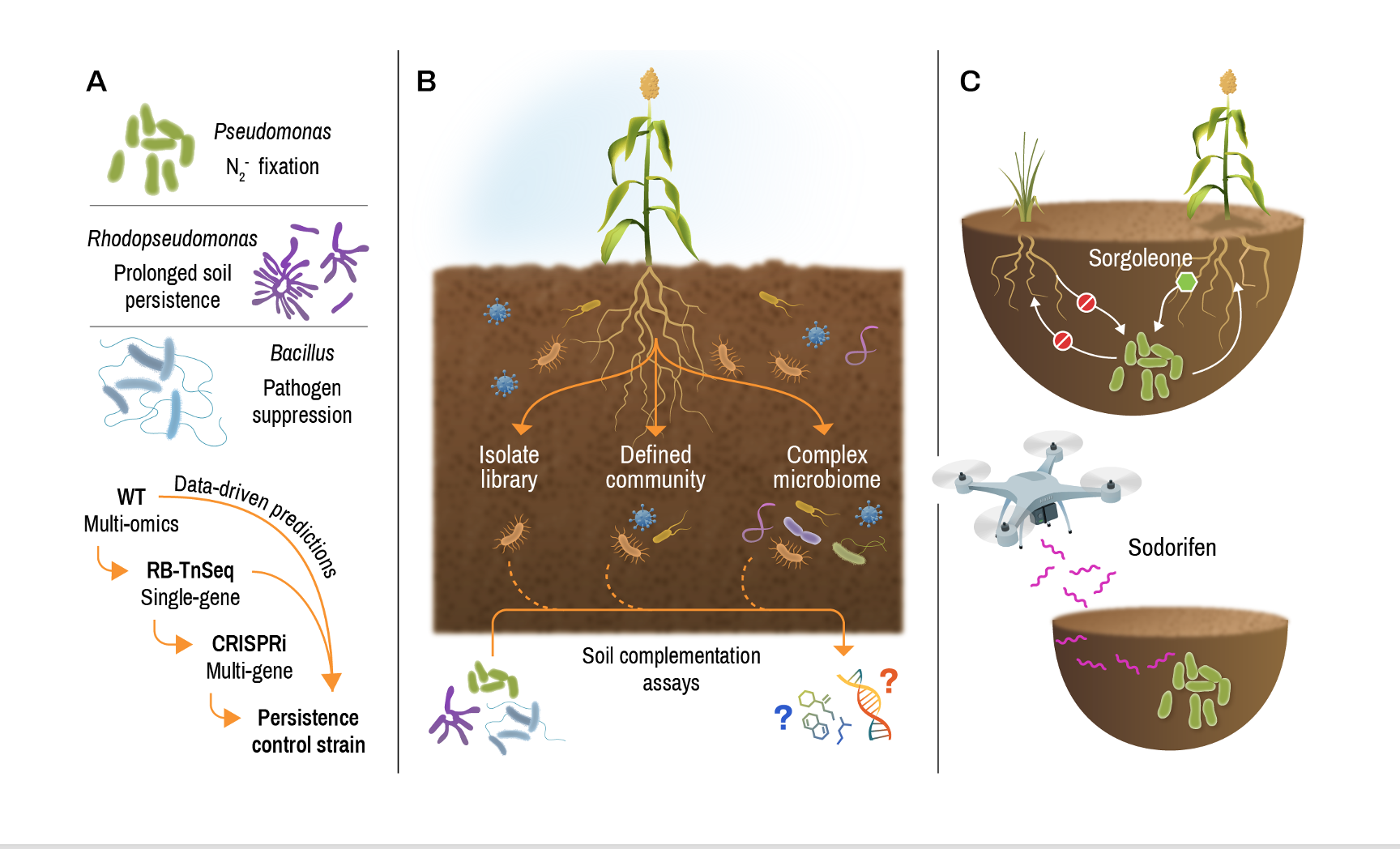
Bacterial Persistence Control in Soils
We are working with scientists at the Pacific Northwest National Laboratory (PNNL) to gain a fundamental understanding of factors governing the persistence of naturally occurring and engineered microbes in plant rhizosphere environments. We are looking at native sorghum rhizosphere microbes and will try to control their niche using genome reduction and engineered addiction to plant root exudates. Sorghum is an important cereal crop worldwide.
Our laboratory will uncover principles of persistence in Rhodopseudomonas palustris (Rpal). This is motivated by data showing that Rpal is widespread in soils, and often found associated with plants where it can be active in plant growth promotion. This work complements our work on bacterial longevity. Rpal is closely related to Bradyrhizobium species. Both groups persist in soils and Bradyrhizobium has been found associated with sorghum and implicated in benefiting sorghum by supplying fixed nitrogen. We are developing and testing hypotheses about the genetic and metabolic basis of the ability of Rpal to persist in soils and to associate with plant roots. Knowledge so gained will be transferred to engineering Bradyrhizobium strains and other slow-growing bacteria, which tend to be difficult to work with, to persist and thrive in the sorghum rhizosphere.